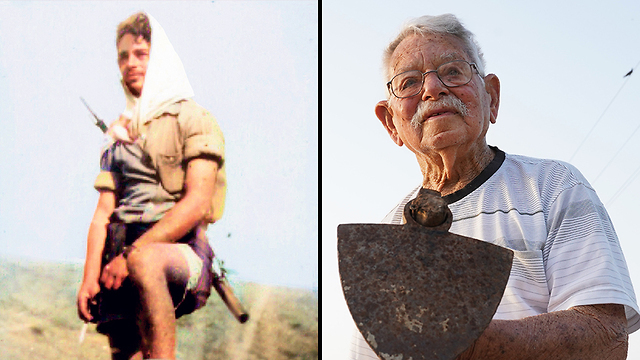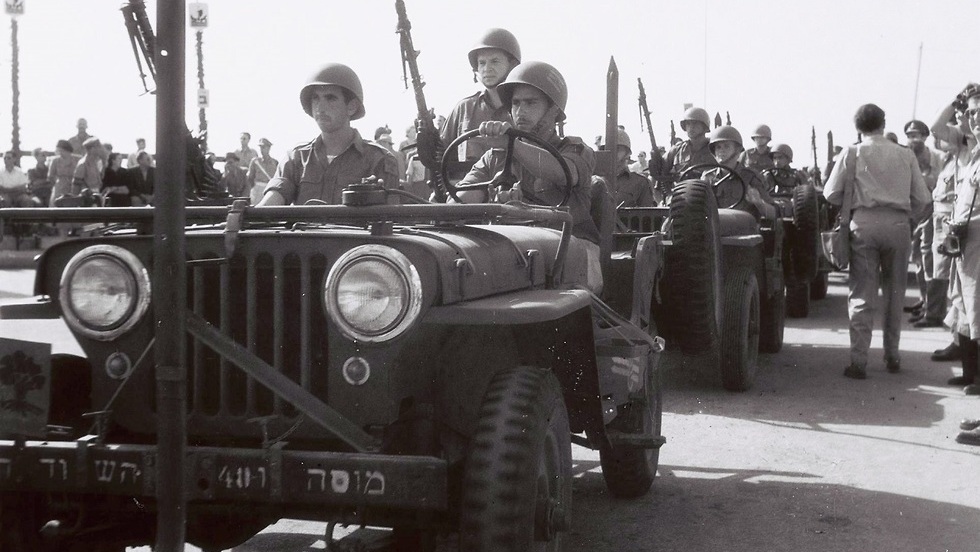Getting your Trinity Audio player ready...
In 1947, before the establishment of Israel, Menachem Zaira was a soldier in the elite Palmah force of the Hagana paramilitary organization. During that time, Menachem took part in a myriad of ground operations, including during Israel’s War of Independence in 1948.
Today, Zaira is 92 years old. His contributions to Israel’s defense are many, and yet, he takes specific pride in the part he played in aiding European Jews — many of whom were Holocaust survivors — to immigrate to Israel against the laws of the British Mandate.
5 View gallery
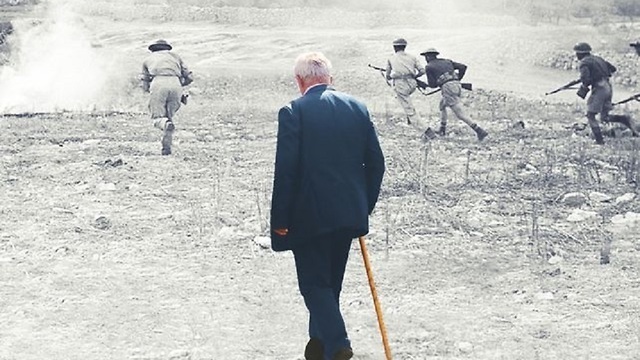

The cover of the book 'And there is no other way' on the War of Independence
(Photo: Palmah archives)
“The first Arrival was unforgettable,” Zaira recalled. “It was March 1947. The whole operation was a secret. We waited for the order from a Mossad agent. We were told to wear clean work clothes so that if we were stopped on the way [by British soldiers], they would not suspect that we were on our way to the beach.”
“When the order came, we drove fast, without stopping… when we finally arrived at Nitzanim Beach, we were divided into squads before lying in wait for our target,” he said.
“A few hours later, in the middle of the night, we saw it. A huge black body making its way towards us through the icy water. It was the ship we waited for. On board were 825 women, men and children from Italy. Adults and young people alike.”
According to Zaira, he and his comrades hurried into the icy black water with nothing but the clothes on their backs and a few rubber boats on which to carry the new arrivals.
“We waited in the water while the arrivals stood on the ship motionless. It was dark and I assume they couldn't see anything past their noses. In the end, one girl, wearing a green dress, dared to take the first plunge.”
In the dead of night, while he and his comrades were helping the new arrivals make their way to shore through the raging water, Zaira remembers seeing the massive silhouette of a British destroyer warship.
“I ran to call for help. About 200 arrivals made their way to safety. By dawn, though, the beach was swarming with British soldiers while we and a large number of arrivals were still there. We tried to mingle with the arrivals so the Brits won’t know who was an immigrant and who wasn’t.
"We were finally caught, though, and taken to Haifa port for deportation to Cyprus... After spending a month in an immigrant's camp in Cyprus, I was finally returned to Israel.”
After Israel's declaration of independence and the consequent war that erupted, Zaira — alongside other Palmah soldiers — joined other Jewish ground forces to protect the newly established Jewish state.
Like many others, Zaira lost many friends in countless battles, all in hope that the Jewish people would find a brighter future — a future he says now looks farther away than ever before.
5 View gallery
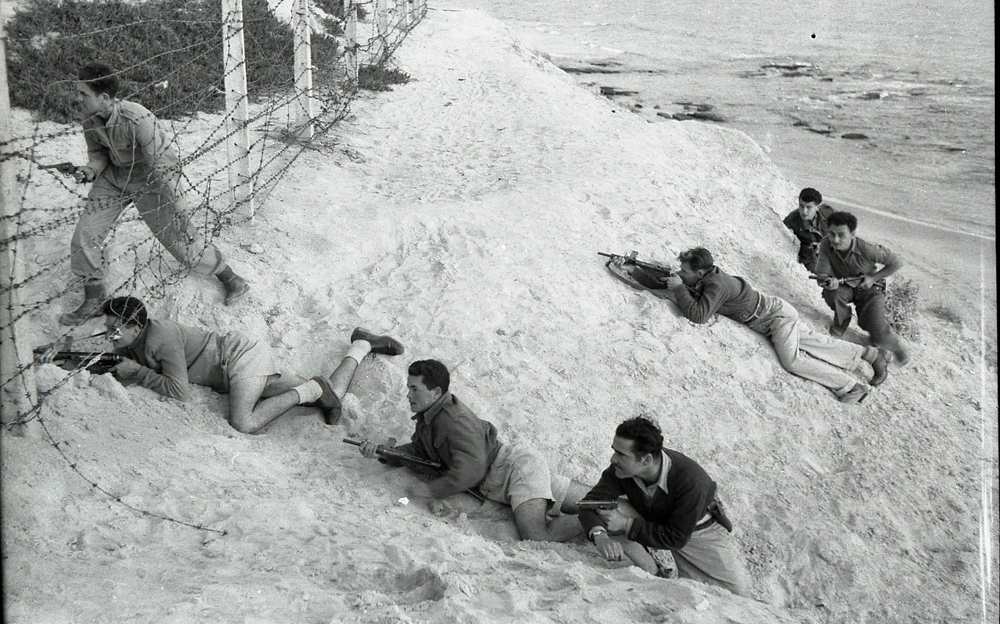

Israeli soldiers training during the War of Independence, 1948
(Photo: State archives)
"When I look at what is happening in Israel today, it hurts me. That is not what we prayed or fought for. If our fallen warriors could come out of their graves, they would return to their country of origin. Our aspiration was to live together, not under the boot of some mafioso. It’s hard seeing where we are headed.”
Another former Palmah soldier is 93-years-old Iraqi-born Yocheved Ben-Shmuel, who arrived in Israel as an illegal immigrant before signing up with Palmah where she served as a combat medic in the Harel Battalion.
“I learned to be a medic within a week because that's all the time we had. We have to thank the British because thanks to them, there were a lot of women fighters in Palmah,” Ben-Shmuel said.
"I was privileged to take up arms, but to save human life,” Ben-Shmuel recalled. “This is the most significant thing a person can do in his life.”
5 View gallery
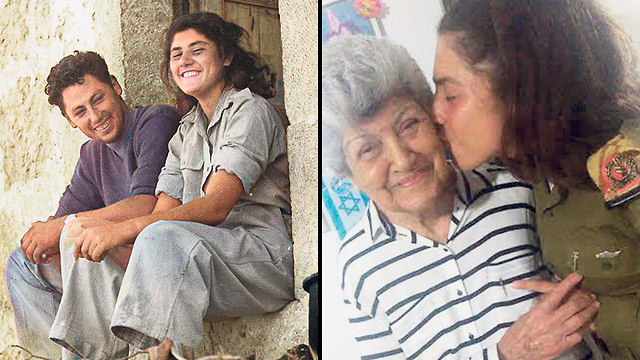

Yocheved Ben-Shmuel in her youth (L) and with her soldier granddaughter
(Photo: Palmah archives)
According to her, she not only remembers every battle she took part in during the War of Independence but also every little detail from the grueling journey to capture Jerusalem from Jordanian forces, as well as every injured soldier she took care of.
“To this day, I remember the words of Yigal Alon — who was the commander of Palamh at the time — just before we embarked on Operation Yoram, the goal of which was to break through to Jerusalem.”
“'Know that the fate of Jerusalem and the fate of the children of Jerusalem is up to you' he said, and I felt as though there was no higher calling. I did not think about the danger, the fear, or the pain. All I could think about was how we were the right people at the right time.”
Ben-Shmuel remembers the ensuing battle in vivid detail, as if it was still raging around her.
“The Jordanians fired at us relentlessly, and I was called to tend to the wounded. I headed to help one soldier, and as I moved to check on him, a grenade fell and injured us both. I remember the screams for help but at that point, I had no more bandages. In the end, we had to retreat.
“Amos Ben-Arieh, commander of one of our divisions, was so badly wounded that he refused to evacuate. He only asked for a grenade, which he used when the Jordanians arrived because he preferred to die rather than be taken prisoner.
“Today we live in our country as free men and women. There were Holocaust survivors beside me, young men who came from hell and fought with us shoulder to shoulder.
"Every time I drive down the Tel Aviv-Jerusalem highway and see the wreckage of our armored vehicles, I tear up. I think of these young men who gave their lives for this country and its people.”


